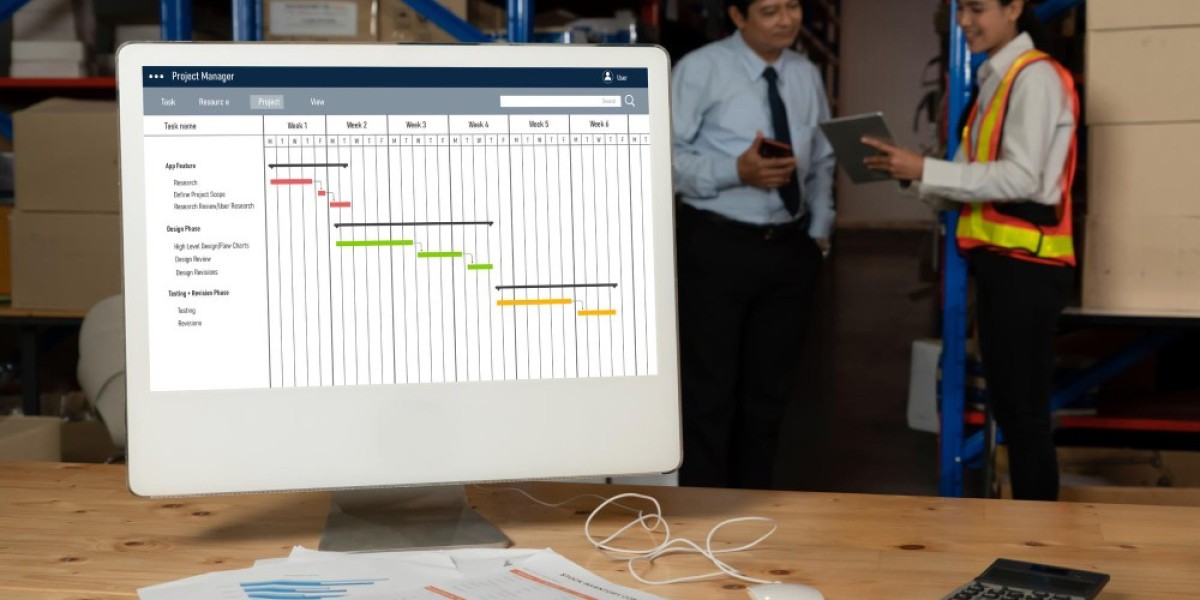Construction projects are complex endeavors that require meticulous planning, coordination, and execution. Effective workload management is crucial to ensuring that projects are completed on time, within budget, and to the satisfaction of clients. In this article, we'll explore some valuable tips for managing construction workloads efficiently, helping construction professionals optimize their processes and achieve better results.
Introduction to Construction Workload Management
Construction workload management involves the strategic allocation of resources, scheduling of tasks, and coordination of activities to maximize efficiency and productivity on construction projects. It plays a vital role in overcoming the numerous challenges faced in the construction industry, such as tight deadlines, budget constraints, and unforeseen obstacles.
Planning and Scheduling
One of the foundational elements of effective workload management is meticulous planning and scheduling. Construction teams should invest time and effort into creating detailed project plans that outline every aspect of the project, from start to finish. Utilizing advanced scheduling software can streamline this process, allowing project managers to allocate resources, set milestones, and track progress more efficiently.
Resource Allocation
Proper resource allocation is essential for ensuring that construction projects stay on track. Project managers should carefully assess the available resources, including manpower, equipment, and materials, and allocate them strategically to different tasks and activities. By optimizing resource allocation, construction teams can minimize waste, reduce downtime, and improve overall productivity.
Communication and Collaboration
Clear communication and effective collaboration are key to successful construction workload management. Project stakeholders, including architects, engineers, contractors, and subcontractors, must maintain open lines of communication and work together seamlessly to achieve common goals. Encouraging collaboration among team members fosters innovation, enhances problem-solving capabilities, and ensures that everyone is aligned with the project objectives.
Prioritization of Tasks
In the fast-paced world of construction, prioritization is crucial for staying focused on what matters most. Project managers should identify critical tasks and prioritize them based on their importance and urgency. By focusing on high-priority activities first, construction teams can make significant progress towards project milestones while minimizing the risk of delays or setbacks.
Monitoring Progress
Regular monitoring of project progress is essential for identifying potential issues early on and making timely adjustments. Project managers should implement robust monitoring tools and techniques to track key performance indicators, such as project timelines, budget expenditures, and quality metrics. By staying vigilant and proactive, construction teams can address problems promptly and keep projects moving forward smoothly.
Adaptability and Flexibility
Construction projects are inherently unpredictable, and unexpected challenges can arise at any time. To navigate these uncertainties successfully, construction teams must be adaptable and flexible in their approach. Project managers should be prepared to adjust plans and reallocate resources as needed to address changing conditions and mitigate risks effectively.
Risk Management
Effective risk management is critical for minimizing disruptions and protecting project outcomes. Construction teams should identify potential risks early in the project lifecycle and develop comprehensive risk mitigation strategies to address them. By proactively managing risks and implementing preventive measures, construction professionals can safeguard project timelines, budgets, and reputations.
Employee Training and Development
Investing in employee training and development is essential for building a skilled and competent workforce. Construction companies should provide ongoing training opportunities to their employees, equipping them with the knowledge and skills needed to excel in their roles. By investing in employee growth and development, construction companies can improve productivity, reduce errors, and enhance overall project performance.
Technology Integration
Technology plays a significant role in modern construction management, offering innovative solutions for improving efficiency and productivity. Construction companies should leverage technology tools and platforms to streamline workflows, automate repetitive tasks, and enhance collaboration among team members. By embracing technology, construction professionals can stay ahead of the curve and deliver better outcomes for their clients.
Quality Assurance
Maintaining high standards of quality is paramount in the construction industry, where even minor defects can have significant consequences. Construction teams should implement robust quality assurance processes to ensure that work meets or exceeds industry standards and client expectations. By prioritizing quality, construction companies can build trust with clients, reduce rework, and enhance project outcomes.
Client Engagement
Effective client engagement is essential for building strong relationships and ensuring client satisfaction. Construction companies should keep clients informed and involved throughout the project lifecycle, providing regular updates on progress, addressing concerns promptly, and soliciting feedback. By fostering transparent and collaborative relationships with clients, construction professionals can deliver projects that meet their needs and exceed their expectations.
Budget Management
Managing project budgets effectively is crucial for controlling costs and maximizing profitability. Construction teams should monitor project expenses closely, tracking costs against budget allocations and identifying areas where savings can be realized. By implementing cost-saving measures and minimizing waste, construction companies can improve their bottom line while delivering value to their clients.
Time Management Techniques
Time is a precious commodity in the construction industry, where delays can have cascading effects on project timelines and budgets. Construction teams should implement time management techniques to optimize their workflows and minimize inefficiencies. This may include strategies such as batch processing, task batching, and leveraging prefabrication to accelerate construction schedules and reduce overall project durations.
Conclusion
Efficient workload management is essential for success in the construction industry, where projects are often complex, demanding, and time-sensitive. By following the tips outlined in this article, construction professionals can optimize their processes, overcome challenges, and deliver better outcomes for their clients. By embracing innovation, fostering collaboration, and prioritizing quality, construction companies can position themselves for long-term success in a competitive marketplace.
FAQs
How can construction companies improve communication among project stakeholders?
Construction companies can improve communication by leveraging technology tools such as project management software, implementing regular project meetings and updates, and establishing clear communication protocols and channels.
What are some common risks associated with construction projects?
Common risks in construction projects include delays due to weather or unforeseen site conditions, budget overruns, labor shortages, supply chain disruptions, and regulatory compliance issues.
How can construction teams manage resource constraints effectively?
Construction teams can manage resource constraints by prioritizing tasks, optimizing resource allocation, outsourcing non-core activities, and leveraging cross-functional teamwork to maximize productivity.
What role does technology play in modern construction management?
Technology plays a significant role in modern construction management by offering tools and solutions for project planning, scheduling, communication, collaboration, resource management, and quality assurance.
Why is client engagement important in the construction industry?
Client engagement is important in the construction industry because it helps build trust, foster transparency, and ensure that project outcomes meet client expectations. Engaged clients are more likely to provide repeat business and referrals, contributing to the long-term success of construction companies.



